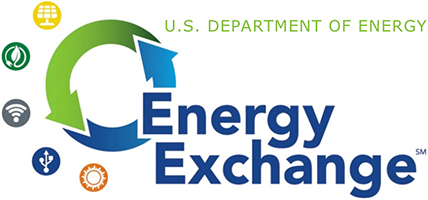Pittsburgh, PA

Effective industrial control system (ICS) asset management is crucial for maintaining the reliability, safety, and security of industrial processes. It helps organizations make informed decisions about investments, upgrades, and maintenance while minimizing operational disruptions and cybersecurity risks. This panel discussion will step through the process of identifying, tracking, monitoring, and maintaining the various components and devices that make up an organization's industrial control systems. An authority to operate (ATO), which is required for any system that connects to a government network, is not achievable without a full accounting of asset management.
Instructors
Stevie Owens, Information System Security Officer, US Customs and Border Protection, Office of Professional Responsibility, Investigative Operations Directorate, Cyber Investigations Read Bio
Stevie Owens is a systems security professional with over 23 years of experience. He’s a baccalaureate graduate from Morgan State University in Baltimore, MD and an ISC2 CISSP member and GIAC Security Leadership (GSLC) certification holder. Mr. Owens has supported the Department of Homeland Security, Customs and Border Protection (CBP) for the past 17 years performing systems development life cycle security compliance. He has performed the DHS security authorization ATO process for DHS surveillance systems on the southern border, radiation detection and X-ray scanning system at U.S. Ports of Entry, and cloud-based applications supporting CBP officers and agents. Mr. Owens currently supports the CBP Office of Professional Responsibility as an ISSO assisting in the development of a Technology Integration Division. The business unit will provide subject matter expertise and support evaluating, implementing and ultimately obtaining Office of Information Technology approval for new/enhanced technology requests within the Office of Professional Responsibility.
Evan Kenney, Senior Cybersecurity Specialist, Risk Management Consulting Read Bio
Mr. Evan Kenney has over a decade of cybersecurity and risk experience in the public and private sectors. Evan currently works at Risk Mitigation Consulting as a Cybersecurity Consultant focusing on operational technology (OT) and supply chain risk management (SCRM). He began his career as a US Army Cyber officer where he led and conducted offensive cyber operations and continues to support the mission in the US Army Reserves. Transitioning to the private sector, he focuses on helping clients understand their cyber risk exposure amid the evolving supply chain threat landscape. Evan is dedicated to enhancing their supply chain risk management practices to ensure resilience and security in today's digital landscape.
Jim Lutz, Technical VP, Cyber Technology & Services, Risk Management Consulting Read Bio
Jim is the technical lead for the Cyber Operations group at RMC and is a recognized expert in Industrial Control Systems and Operational Technology cybersecurity. Under his leadership, the group has grown significantly to support all aspects of cyber risk management and mitigation, risk/vulnerability assessments (red and blue teams), R&D of vulnerabilities and mitigations, Computer Network Defense (CND), security operations center management, and Incident Response. Jim has over 25 years of experience in risk management, system validation, cybersecurity assessments, penetration testing, and secure software development. Prior to RMC, Jim served in cybersecurity and IA roles at Booz Allen Hamilton, SAIC, SRA International and Sprint. Jim has achieved and maintains CISSP, PMP, GISCP, GRID, CSSLP, CEH, and Security + certifications. He holds a Master of Science in Information Assurance and a Bachelor of Science in Computer Science.
Learning Objectives
Upon completion of this course, attendees will be able to:
- Identify considerations for selecting, procuring, deploying, and configuration assets;
- Identify the importance of asset identification as part of the RMF/ATO process;
- Recognize challenges with current methodologies and tools for asset identification and tracking, specific to ICS/OT;
- Recognize the importance of and best practices for maintaining assets;
- Recognize best practices for asset decommissioning.









